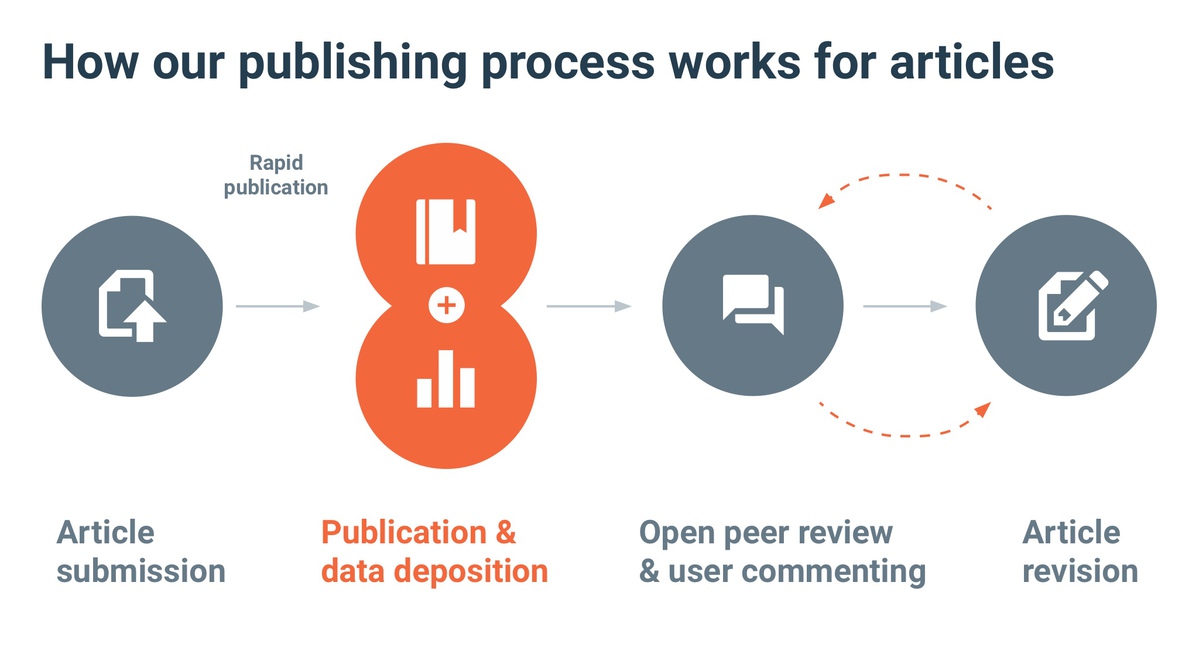Physics
Publish your Physics research, methods, software, and data fast and openly
Submit nowPhysics is a fundamental, vibrant, and multidisciplinary arm of science that benefits from open, accessible, reusable, and rapid research to help shape future technologies and scientific advances.
By publishing all your physics research openly, you are helping to provide an inclusive and collaborative environment where other experts within this field can discuss, build upon, and replicate methods and results with ease. An open research model has many benefits, such as strengthening scientific integrity and building confidence within the community.
Publishing with F1000Research enables researchers to stay ahead of the curve through the rapid dissemination of research. All articles benefit from open and transparent post-publication peer review and those that pass will then be indexed in PubMed Central and Scopus. You can also publish a wide range of article types enabling you to have greater flexibility and credit for your full range of work.
We welcome research articles across all areas of physics, including:
- Applied physics
- Quantum mechanics
- Atomic physics
- Particle physics
- Molecular physics
- Condensed matter
- Acoustics
- Astronomy and astrophysics
- Biophysics and medical physics
- Electronics
- Optics and photonics
- Mechanics
- Meteorology
- Nuclear physics
- Chemical physics
- Plasma
- Theoretical and computational physics
- Mathematical and statistical physics
You can also explore and submit to our dedicated Quantum Technology collection here.
Our unique publication model, combined with our progressive Open Data Policy, makes F1000Research the perfect home for transparent, reproducible physics research.
If you have questions or you would like to propose a themed collection please email Guillaume.Wright@f1000.com.
Article Guidelines
At F1000Research we publish a wide range of article types to maximize the delivery of your findings. Before submission, take a look at the guidelines to ensure your article is formatted correctly.
Learn MoreWhy Publish with F1000Research?
- Our rapid publication model helps your research make an impact sooner
- Transparent, post-publication peer review by invited experts so authors can liaise directly with them.
- Gives authors greater control and boosts the credibility of their research.
- A range of article types including research and review articles, case studies, data notes, software tools and more.
- Inclusion of all source materials and data to help further the open research movement.
- Plus, one 2019 study suggests that open data can generate up to 25% more citations.

Featured Articles
Density artefacts at interfaces caused by multiple time-step effects in molecular dynamics simulations
Dominik Sidler, Marc Lehner, Simon Frasch, Michael Cristófol-Clough, Sereina Riniker
The effects of multiple time-step algorithms at interfaces between polar and apolar media are investigated with MD simulations. Such interfaces occur with biological membranes or proteins in solution. Researchers discovered that twin-range schemes are not advisable to use in combination with weak coupling or Nosé-Hoover (chain) thermostats due to the occurrence of significant numerical artifacts at interfaces.
Modified Kibria-Lukman (MKL) estimator for the Poisson Regression Model: application and simulation
Benedicta B. Aladeitan, Olukayode Adebimpe1, Adewale F. Lukman, Olajumoke Oludoun, Oluwakemi E. Abiodun
Multicollinearity greatly affects the Maximum Likelihood Estimator (MLE) efficiency in both the linear regression model and the generalized linear model. This study sought to modify the KL estimator to mitigate the Poisson Regression Model with multicollinearity.
Comparison of 1480 nm and 980 nm-pumped Gallium-Erbium fiber amplifier
Siti Azlida Ibrahim, Amilia Mansoor, Tuan Ainin Sofea Tuan Mohd Marzuki, Nasr Y. M. Omar, Hairul Azhar Abdul Rashid
One way to reduce the length of the gain medium in Erbium-Doped Fiber Amplifier (EDFA) is by doping the fiber core with a high concentration of Erbium. However, this method caused ion clustering effects, which limits the EDFA’s efficiency. In this research, the use of Gallium as a new co-dopant in erbium-doped silica fiber is explored.
About F1000Research
F1000Research is a fully open access publishing platform, offering rapid publication of articles and other research outputs without editorial bias. All articles benefit from transparent post-publication peer review, and editorial guidance on making source data openly available.
F1000Research advocates for transparency and reproducibility in research, and our unique publishing model supports this at every stage. Articles can be published in as few as 14 days, with post-publication peer review creating an open dialogue between authors and their research community.
Ready to publish?
Before you submit take a look at our guidelines which cover every article type we accept from traditional Research Articles, Data Notes, Software Tool Articles and many more.
Learn MoreSign up to receive F1000Research emails
Be the first to know about special offers, calls for papers, exclusive content, and more from F1000Research. Sign up to our mailing list today.
Sign up nowOpen and Transparent Peer Review Process
Submit your physics research and communicate directly with your expert peer reviewers encouraging collaboration within the research community.
Read More
